The Albanese government’s target to build 1.2 million homes over five years, equating to 240,000 homes a year, is drifting further out of reach.
After only 170,000 net dwellings were added to Australia’s housing stock in 2022-23, the Australian Bureau of Statistics (ABS) reported that only 164,300 homes were approved for construction in the year to October:
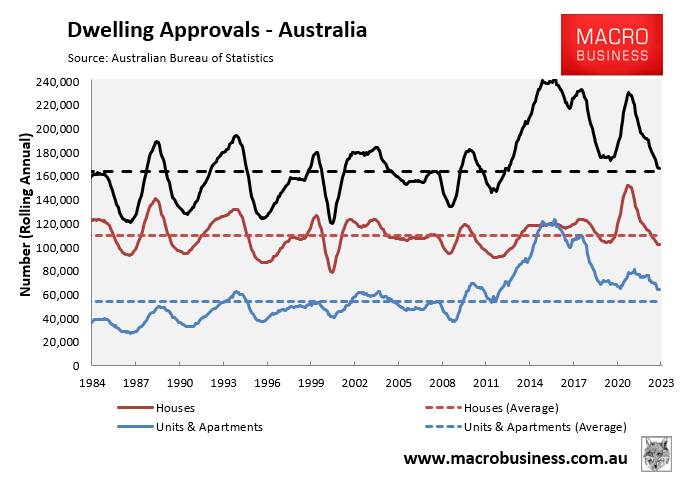
This level of dwelling approvals was the lowest since the year to March 2013, and is around 76,000 below the Albanese government’s annual housing target.
109,900 detached houses were approved for construction in the year to October, as well as 54,400 units and apartments.
The next chart from CBA plots the rate of approvals per 100,000 residents:
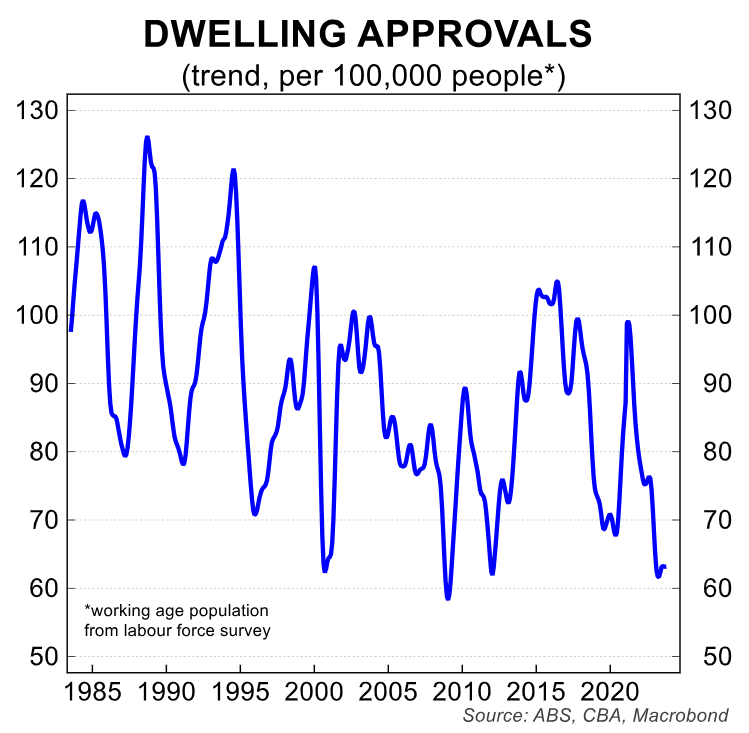
As you can see, the current rate of approvals is tracking at cyclical lows, commensurate with past housing downturns.
The data is obviously worrying given it has arisen at the same time as Australia’s population is growing at a record pace courtesy of the Albanese government’s extreme immigration policy:
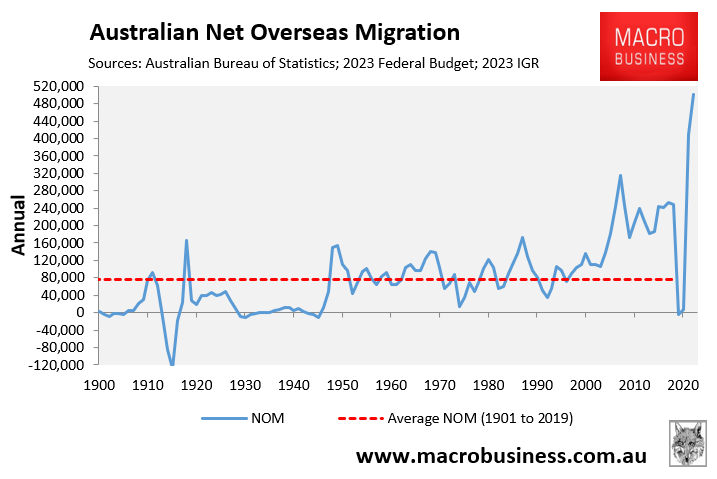
The June quarter national accounts from the ABS estimated that Australia’s population grew by a record 626,000 people over the 2022-23 financial year, which was well above actual dwelling completions of 174,400 and net housing additions (after demolitions) of 170,000:
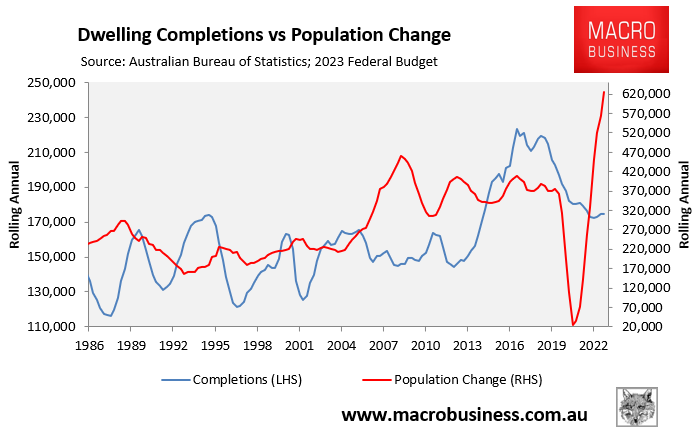
The upshot is that Australia’s housing shortage will inevitably worsen as record immigration demand completely overwhelms the crashing supply.
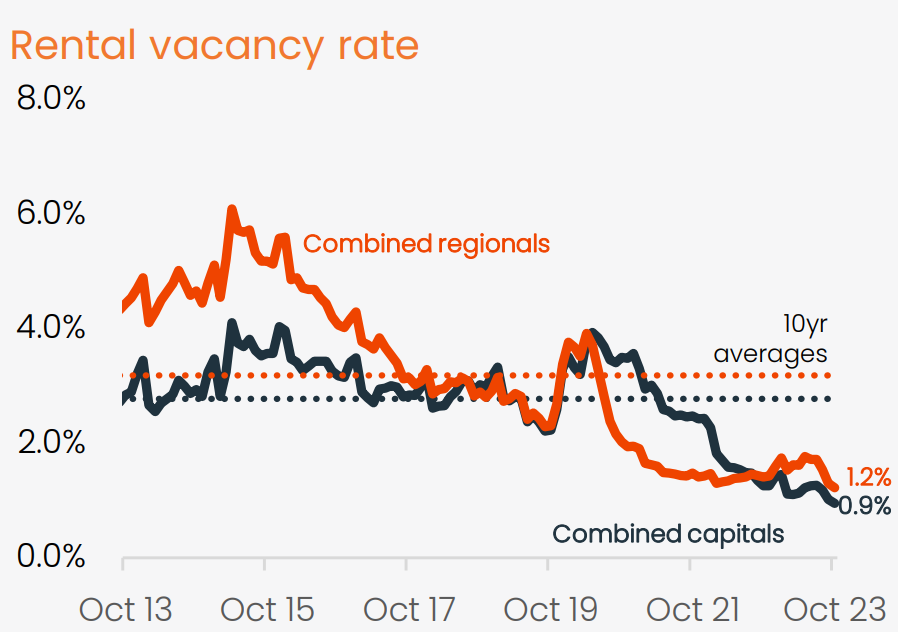
Source: CoreLogic
In turn, Australia’s record low rental vacancy rate will tighten further, lifting rents into the stratosphere and forcing more Australians to either live in group housing or become homeless.
The Albanese government’s mad immigration policy is literally driving Australians into housing poverty.

